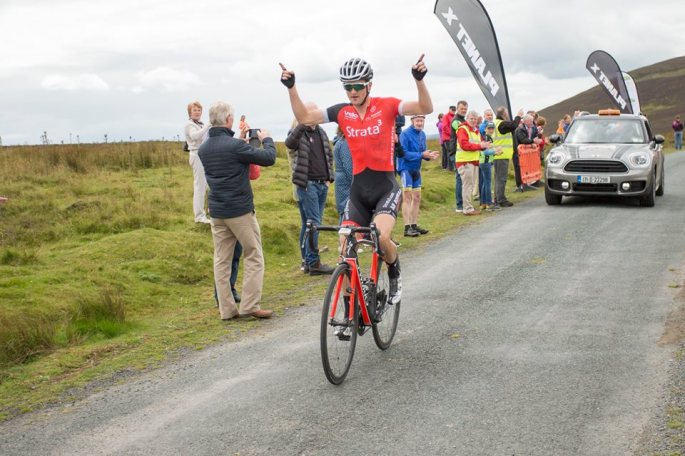A few weeks ago, I wrote an article here about people taking control of their working lives. We all need to work, the bills will not pay themselves and work is actually quite good for you. However, it should not be at “any” cost and in my opinion, there should be a healthy balance between work and life, especially family life and even more importantly, relationships with children.
I often wonder how many people dread the clock going off in the morning, as they face another day “at the mill”. My own dad was a truck driver and as we were growing up, he was away a lot of the time. In later years he often commented on how much he missed out on and how much he regretted not being around more. He was lucky however in having plenty of grand-children to keep him busy during his retirement and he loved the role of being a “second time dad”.
Over the last few years and especially since the recession, work patterns in Ireland have changed greatly. The traditional 9 to 5 job is slowly giving way to shift work, night work and even weekend work. Terms and conditions are a shadow of what they once were, with little gems such as zero hour contracts, split shifts, flexibility and whatever employers will come up with next. As I said before, those employers hold all the aces and they are not one bit afraid to use them.
A few years ago, the Irish government introduced an initiative to assist people in finding jobs. The initiative was called “Jobsbridge” and despite what the critics will say, I actually think it was a good idea. Through Jobsbridge, an unemployed person, in receipt of social welfare, took a job, where they were paid an extra €50 per week. They picked up training on vital skills, got themselves back into a work environment and got routine back into their lives. If a person found themselves in a job that they didn’t like, the door was open; they could move on and try something else. Employers on the other hand gained as well. They got an opportunity to see if a person was suitable for a role and if they were as good as they purported themselves to be. In lots of cases, people who entered Jobsbridge actually got full time jobs and in some cases, the initiative actually worked.
However, this is Ireland and as usual, some people saw Jobsbridge as a handy way of saving a few quid. Nothing can be straightforward in Ireland, be assured of that and there will always be somebody looking to cash in on things. Jobsbridge was manna from heaven to unscrupulous employers, where they could get people to do jobs, for €50 per week. As I said in an earlier article, many of them were afraid to waste a good recession. Every job that was advertised, from factories, hotels, bars and supermarkets, was through Jobsbridge. Instead of looking at a person’s education or qualifications, entry criteria were “being in receipt of social welfare”. The entire system was ripe for easy pickings and with 13% of an unemployment rate; there was no shortage of fruit. Needless to say, Jobsbridge failed miserably as it was slated by politicians and the public which it was meant to help, turned against it in their droves. Once again, certain sections of Irish business put greed at the top of their list and capitalised on the misfortune of others. Not like that ever happened before, right?
So, what opportunities are available for Irish workers? Can they better themselves? Can they find a way into a better job, without being exploited? Is there such a thing as a job that fits in around a person’s life, instead of it being the other way round? The answer is yes, there is and it’s much more available than you think.
Last Friday, I qualified from an adult education programme with a QQI Level 5 Major award in E-Business and Administration. Throughout the last 10 months, I have committed myself to the course, with one thing on my mind, to better myself, make myself more employable, to build my confidence and to prove that I am capable of a lot more than I previously thought. I have sat in a classroom with people much younger than me and I have thrived on the energy and positivity. I have made great friends and loved every moment of it. I was shown how to build a website from scratch, I’ve been instructed on Sage Book-Keeping software, how to use MS Word and Excel properly, how to complete assignments on time and to certain standards. It doesn’t stop there, as I was encouraged to do more such as looking at media as a potential way forward in my life. The high point for me was a two week stint in our local radio station Tipp FM, where I was given access to their entire social media presence and encouraged to work on it.
My end of the bargain was just to turn up every day, work hard, commit myself to the project and strive to achieve the best results I was capable of. Every conceivable assistance I could think of was provided to me and I would want for nothing. The facilitators were available 24/7 and the tutors were at my beck and call. Every question, query and suggestion I had was listened to and either expanded upon or improved upon. I did well, with distinctions in all modules and I am most definitely much more employable now, than I was 12 months ago. I have the skills to look towards doing what “I” want to do in my working life and wherever I go from now, “I” will hold a lot more of the aces.
We hear a lot in Ireland that there are no options available to people and that there is no hope. Lots of people actually go into a job every morning and they just wish for the day to end. On the other hand, there are lots of people out of work, who can’t see the woods for the trees. Some people face the unemployment office to “sign on” and it drains their strength and saps their will to improve. They feel useless, that they have failed themselves or their families, especially their children. It doesn’t have to be that way. Work should compliment life and it should provide a happy equilibrium for a person, where they can balance their private life with paying their bills.
So, what can people do? Courses like mine are available all the time and are done with one end goal, to prepare people to do better for themselves and to make themselves more employable. The single most important asset any company will have, is its people.
So, with that in mind, I would encourage everybody to look into the possibility of an adult education programme and you just never know what the future may hold.
For me, it’s now time to begin paying back the investment that Ireland has spent on me. I would love to work in media, writing, website marketing or administration. Not bad for a 52 year old, who never bothered with college.



You must be logged in to post a comment.